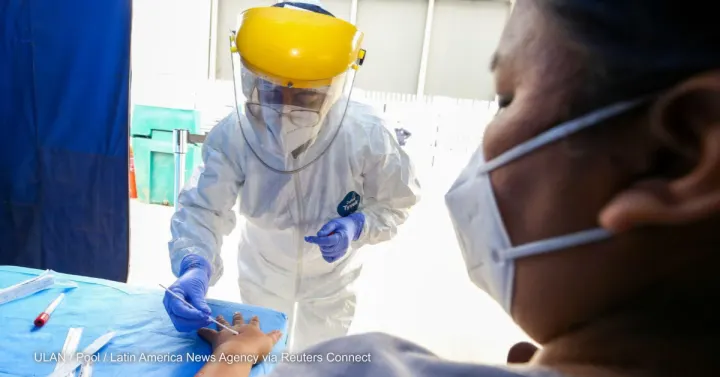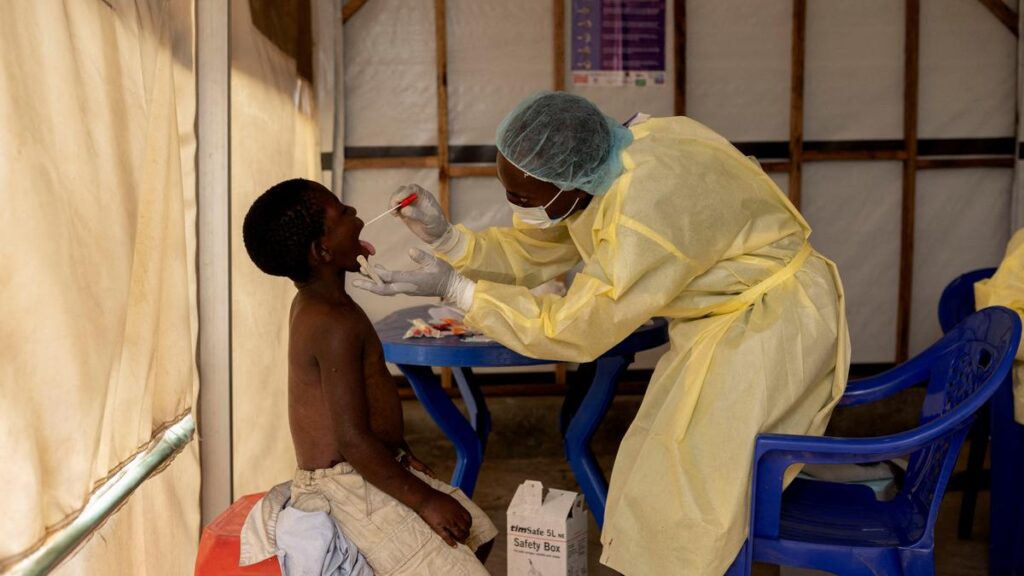
Introduction to Mpox and its potential impact
As the world grapples with an array of health crises, a new global health emergency has emerged on the horizon: Mpox. Formerly known as Monkeypox, this viral disease is raising alarms globally due to its potential for rapid spread and severe implications for public health. India, with its vast population and diverse healthcare challenges, finds itself at a crucial crossroads in addressing this emerging global health emergency.
The question lingers in the air: Is India truly prepared to tackle Mpox? With prior outbreaks serving as lessons learned and advancements in technology paving new pathways for response efforts, there’s much at stake with the global health emergency. As we delve into seven critical points surrounding India’s readiness for Mpox, we’ll explore everything from current healthcare infrastructure to innovative solutions that could mitigate risks. Join us on this journey as we uncover what lies ahead and how India can effectively respond to yet another challenge on the global health landscape.
Current state of India’s healthcare system
India’s healthcare system is a complex web of public and private sectors. It serves over a billion people, yet faces significant challenges. Access to quality care remains uneven, especially in rural regions even with the global health emergency.
Public hospitals often struggle with overcrowding and inadequate resources. Patients frequently wait for hours or days for treatment. This scenario reveals gaps that can be detrimental during health emergencies like Mpox.
On the other hand, the private sector offers advanced facilities but at a high cost. Many citizens find themselves unable to afford essential services, which further complicates overall health access.
Despite these hurdles, there are ongoing efforts to enhance infrastructure and expand coverage through initiatives like Ayushman Bharat. However, as new threats emerge globally, India’s readiness for swift response continues to be tested amidst these systemic issues.
Challenges in implementing a global health emergency response
Implementing a global health emergency response faces numerous challenges, particularly in diverse nations like India. One major hurdle is the variability in healthcare infrastructure across urban and rural areas. Disparities can lead to uneven access to resources and services.
Another significant issue lies in coordination among various governmental agencies. Effective communication is crucial during an emergency, but bureaucratic red tape often complicates timely responses.
Moreover, public awareness plays a critical role. Misinformation can spread rapidly during crises, hindering vaccination efforts and other preventive measures.
Cultural factors also influence how communities respond to health advisories. Tailoring messages that resonate with different populations proves essential yet challenging.
Financial constraints limit preparedness initiatives. Without adequate funding for training and equipment, any response may falter when faced with urgent demands from a global health emergency like Mpox.
Government efforts and initiatives towards improving healthcare in India
The Indian government has taken significant steps to enhance the healthcare landscape. Initiatives like Ayushman Bharat aim to provide affordable health insurance and improve access to quality services for millions.
Investment in infrastructure is crucial. New hospitals and clinics are being built, especially in rural areas where healthcare has historically lagged.
Digital health initiatives have gained momentum as well. The National Digital Health Mission is working towards creating comprehensive digital records for patients, streamlining data management across facilities.
Public awareness campaigns play a vital role too. Promoting preventive measures helps communities prepare better for potential outbreaks, including Mpox.
Collaboration with international organizations strengthens India’s capacity to respond effectively. Partnerships with WHO and other agencies ensure that best practices are adopted swiftly during global health emergencies.
These efforts reflect a commitment to building a robust healthcare system capable of tackling emerging threats head-on.
Role of technology in addressing Mpox and other health emergencies

Technology is playing a pivotal role in tackling Mpox and other health crises. Advanced data analytics helps health authorities track outbreaks in real-time. This allows for swift responses, minimizing the spread of diseases.
Telemedicine has gained momentum too. It connects patients with healthcare professionals remotely, reducing the burden on hospitals during emergencies. This ensures that people receive timely advice without risking exposure to infectious environments.
Wearable devices are enhancing disease monitoring. They can measure vital signs and detect symptoms early, facilitating prompt intervention when needed.
Mobile applications also contribute significantly by providing information about vaccinations and preventive measures. Public awareness is crucial during any global health emergency.
Artificial intelligence aids in predicting potential outbreaks by analyzing patterns from past incidents. Such insights can inform better preparedness strategies for future challenges like Mpox.
Lessons learned from past disease outbreaks and how they can be applied to Mpox

Past disease outbreaks have taught us invaluable lessons. The HIV/AIDS crisis emphasized the importance of timely information and community engagement. Misinformation can spread faster than any virus, leading to stigma and fear.
The Ebola outbreak highlighted the need for rapid response teams. Swift action helps contain outbreaks before they escalate into a global health emergency.
SARS and H1N1 demonstrated how crucial vaccination campaigns are in protecting populations. Proactive measures save lives and reduce healthcare burdens later on.
Furthermore, integrating mental health support during crises is essential. Outbreaks affect not just physical health but emotional well-being too.
Each lesson provides a framework that India can apply towards addressing Mpox effectively. Preparation, communication, and adaptability will be pivotal in navigating this challenge ahead.
Conclusion: Is India ready for Mpox and what steps need to be taken for effective emergency response?
As the world grapples with Mpox, India stands at a critical juncture. The ongoing global health emergency necessitates a robust and well-coordinated response. While India’s healthcare system has made significant strides, there are still gaps that need to be addressed.
Enhancing surveillance capabilities will play a vital role in early detection and containment of outbreaks. Strengthening local health infrastructure is equally important; this includes better training for healthcare workers and ensuring adequate supplies of essential medicines.
Moreover, effective communication strategies must be employed to educate the public about prevention measures related to Mpox. Community engagement can help dispel myths surrounding the disease while encouraging proactive behaviors.
The integration of technology also holds promise for improving response efforts. Mobile applications can facilitate data collection, provide real-time updates on disease spread, and even assist in contact tracing during outbreaks.
Reflecting on lessons learned from past crises—including COVID-19—can guide policymakers in refining their approach toward handling Mpox. By learning from both successes and failures experienced during previous emergencies, India can bolster its readiness for future challenges.
Whether India is truly ready for Mpox hinges on these multifaceted efforts: strengthening systems already in place while innovating new solutions tailored to current realities. With decisive action now, the country has an opportunity not just to respond effectively but also to set benchmarks in managing global health emergencies moving forward.
Visit QAWire for more news on Mpox.
